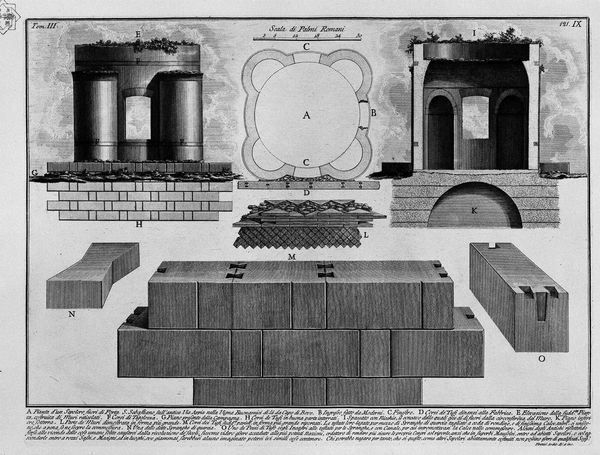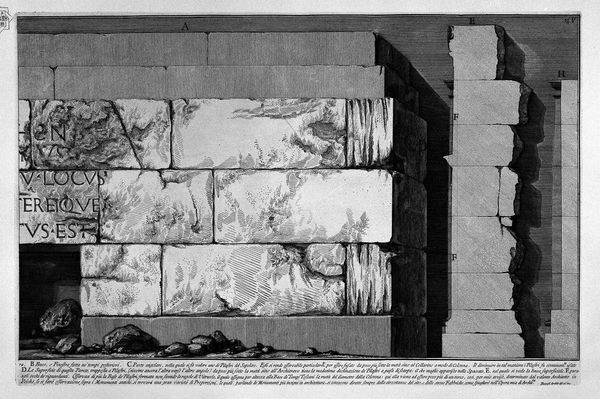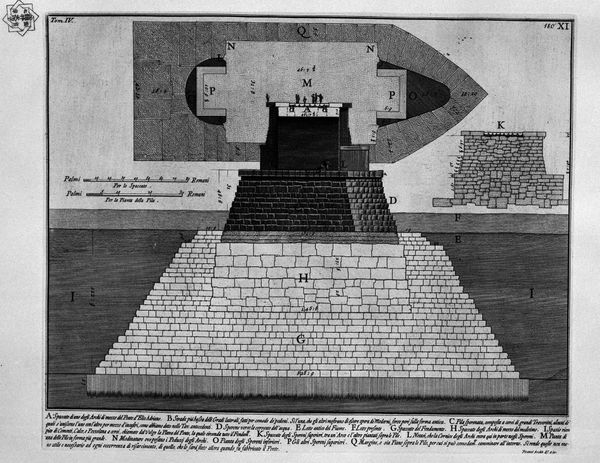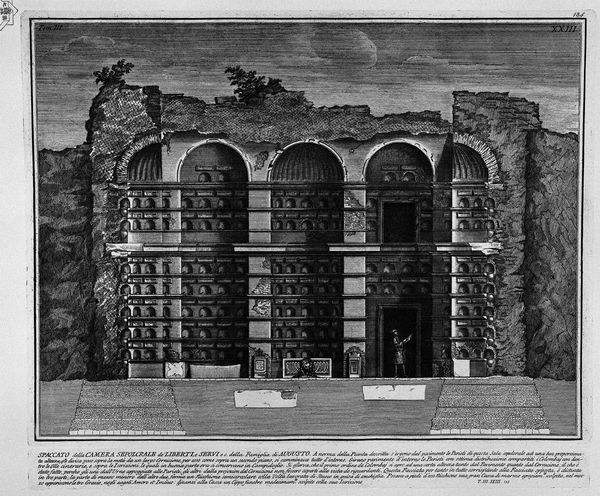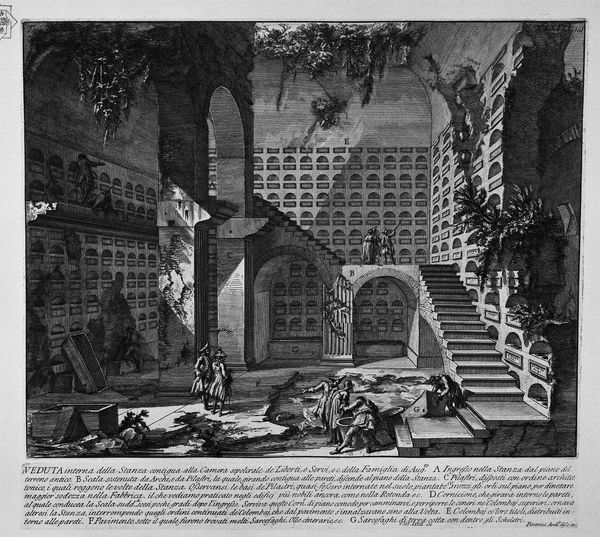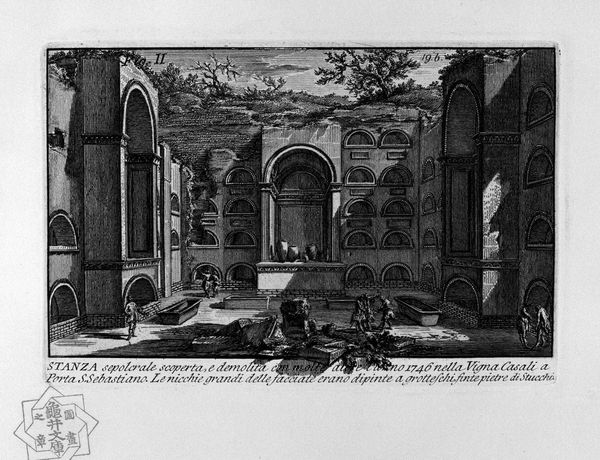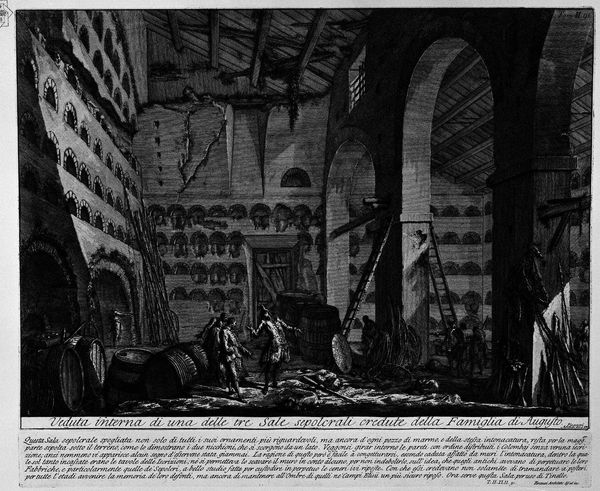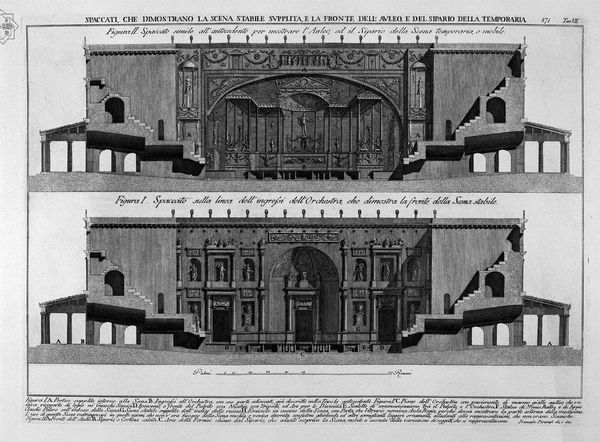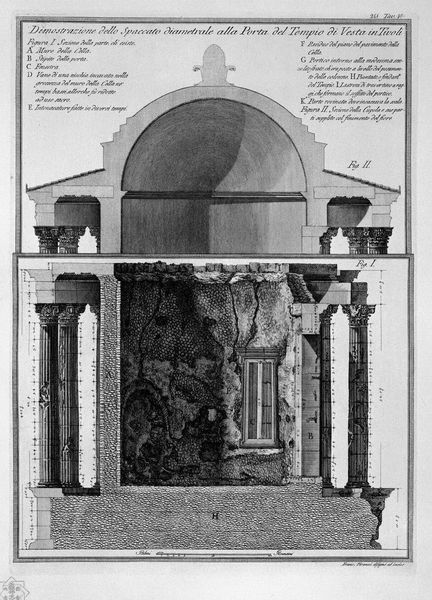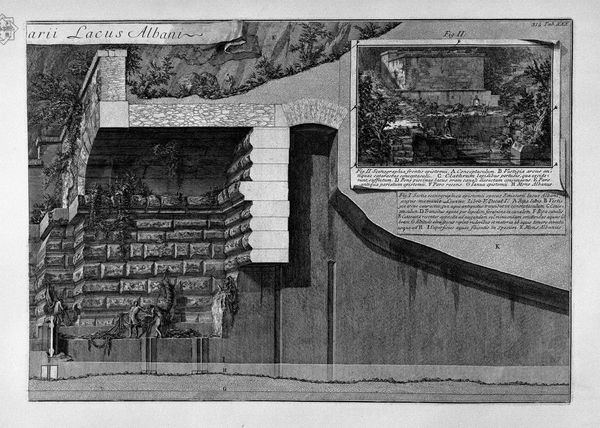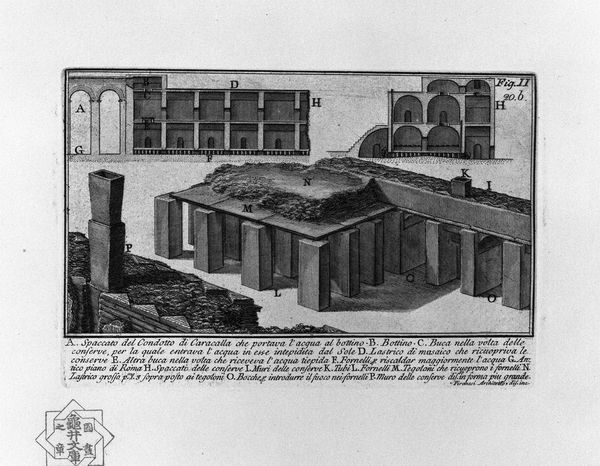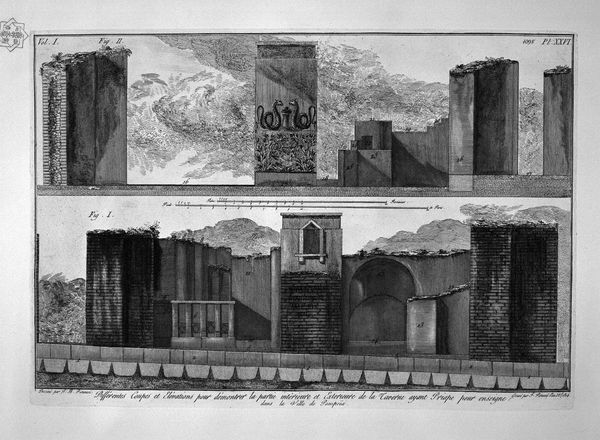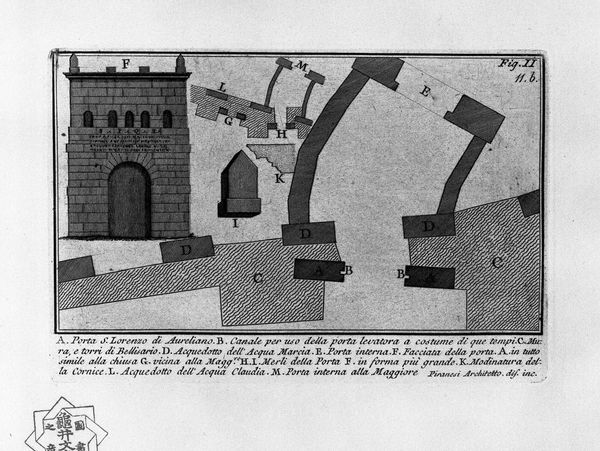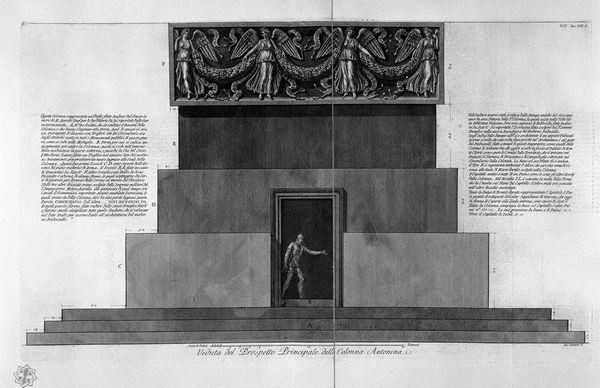
The Roman antiquities, t. 2, Plate XXXVII. Plan and elevation of a tomb located on the ancient Via Appia near the Vineyard Buonamici. 1756
0:00
0:00
drawing, etching, paper, architecture
#
drawing
#
neoclacissism
#
etching
#
landscape
#
paper
#
form
#
romanesque
#
geometric
#
ancient-mediterranean
#
line
#
architecture
Copyright: Public domain
Editor: So this is Giovanni Battista Piranesi's "Plan and elevation of a tomb located on the ancient Via Appia near the Vineyard Buonamici," from 1756, done as an etching. It's so precise and geometrical, almost sterile, but with a certain gravitas to it. What do you see when you look at it? Curator: Immediately, the formal composition commands attention. Observe the stark contrast between the solid, almost severe geometric forms and the textured surfaces that define the architectural elements. Piranesi is highlighting the inherent structure, the pure form stripped of superfluous ornament. Editor: Do you mean how the numbered and lettered key dominates? The architecture feels almost secondary. Curator: Precisely. The schema provided allows us to decode the elevation. Consider how line functions here. It doesn't merely represent edges; it defines planes, textures, and even the play of light and shadow, all crucial in understanding the form. Do you notice any points where the perspective seems… deliberately skewed? Editor: Now that you mention it, yes! It feels flattened, like he's prioritizing information over realistic depth. Is he playing with how we perceive space? Curator: Exactly! Piranesi isn't simply documenting; he is interpreting, imposing a structured understanding onto the Roman ruin through line and spatial manipulation. The very act of representing space in this flattened way becomes part of the artwork's statement. Editor: It’s interesting how by focusing on the lines and the forms, the emotional weight shifts. Curator: Indeed. The essence is not about the ruin's romance, but the artist's restructuring of that ruin via graphic means, emphasizing geometrical relationships above all. Editor: I see now! Thanks to the deconstruction you proposed, I definitely changed my mind about my initial reading!
Comments
No comments
Be the first to comment and join the conversation on the ultimate creative platform.
